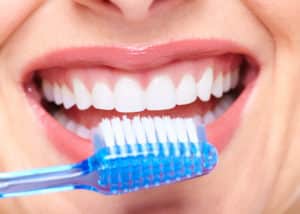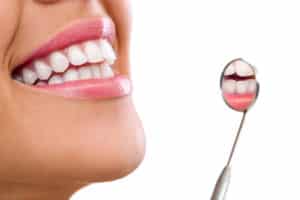Interesting Facts About Your Oral Health


Although everyone has a mouth (and we hope teeth), no two people are alike. Oral health will differ from person to person, and especially between different cultures and countries. Americans have recommendations for keeping a healthy mouth that other countries don’t have. There are also many studies that show interesting facts about how well (and how bad) Americans take care of their teeth and mouth. Find out facts about American’s teeth, how often they clean them, how they get damaged and more!
What Is Your Oral Health?
From the term “oral health”, you can see that this term means the health of your oral cavity. Your “oral” health is going to involve every part of your mouth: your tongue, teeth, gums, cheeks, hard palate, soft palate, uvula and everything in-between. You can also include your throat and neck as well, because these areas are checked during an oral cancer screening. Often, oral health is also called “oral hygiene”, and this term in used in regard to what you do to keep your mouth healthy.
Hygiene consists of the practices used to keep something clean. When it comes to your mouth, it includes brushing and flossing your teeth often, cleaning your tongue, using mouthwash, and utilizing other habits that kill germs and freshen breath. The cleaner you keep your mouth, the more you reduce your risk for chronic oral health problems and disease. Some of the most chronic diseases (according to the Centers for Disease Control and Prevention) include tooth decay and gum disease. These are diseases that stem directly from patients not keeping their mouths clean, which causes decay, erosion and areas of infected tissues.

How Well Are Americans Doing?
People in the United States are not brushing, flossing or seeing the dentist enough. Some people don’t do these habits at all. This can seriously affect a person’s overall health, as the mouth is the window to the rest of the body. Consider the facts:
- The CDC reports that tooth decay (a.k.a. cavities) is the most chronic, prevalent disease among U.S. children and adults.
- 92% of adults between 20 and 64 have had cavities in their teeth, of which about 26% are not treated.
- Adults in that age range have on average 3-4 decayed or lost teeth because of cavities.
- More than 36 million Americans are missing all of their teeth, which is known as “toothlessness” or “edentulism”.
- An estimated 120 million Americans are missing at least one tooth due to tooth decay, gum disease or an oral health problem.
- Over 64.7 million American adults (which is 47.2%) have gum disease, which happens when a person doesn’t brush or floss, or do these oral health habits enough.
- 30% have moderate gum disease (getting close to tooth loss), 8.7% have mild (which can be reversed) and 8.5% have severe gum disease (when teeth start falling out).
- The American Dental Association recommends brushing your teeth at least twice a day. From polls, about 44% of men and 37% of women brush twice a day. Around 49% of men and 57% of women only brush once a day. The rest don’t remember the last time they brushed their teeth.
- Flossing is not something you want to skip, as the areas you floss make up about 40% of your tooth surfaces.

Why Are Problems So Common?
Tooth decay and other oral health problems run rampant simply because not enough people are taking the best care of their teeth and mouth. Many people don’t realize that they should brush for about 2 minutes, several times a day. A large amount of people also skip out on flossing their teeth or they do it incorrectly. You should brush your teeth for 2 minutes, covering all the tooth surfaces, moving the toothbrush back and forth, and in circular motions. You should floss daily, and should visit the dentist at least twice a year for comprehensive exams and dental cleanings. When flossing, you should scrape your tooth surface and make sure all food and plaque particles are removed.
When choosing toothpastes and dental products, choose ones that have fluoride in them to strengthen your teeth. Another major cause of dental decay is sugar intake. The majority of people are exceeding their daily recommended sugar intake by several times. The more sugar you ingest, the more plaque you make and the more your teeth can decay. If people cut back on the desserts, snacks and sugary drinks, the tooth decay problem would shrink.
Life changes may also cause changes to a person’s oral health. For example, pregnancy hormones and an increase of blood in a woman’s system can increase the likelihood of pregnancy gingivitis. This can turn into gum disease quickly if a person doesn’t have good oral health habits. Getting braces is another factor that can make the teeth much harder to clean, which raises the chances of tooth decay, erosion, and gum disease. Life changes that affect a person’s oral health only happen here and there, so the main factor is how often a person is practicing good oral hygiene habits.
Taking Care of Your Oral Health
Even though oral health problems run rampant in the U.S. population, it is actually very easy to take care of your oral health! Brush, floss, see the dentist, and switch out sugary foods and drinks for healthier options. That’s all you have to do. However, technique is important with your oral hygiene. Call Dr. Ania’s office at 303-443-0998 to schedule your comprehensive exam and to learn proper oral hygiene techniques!


